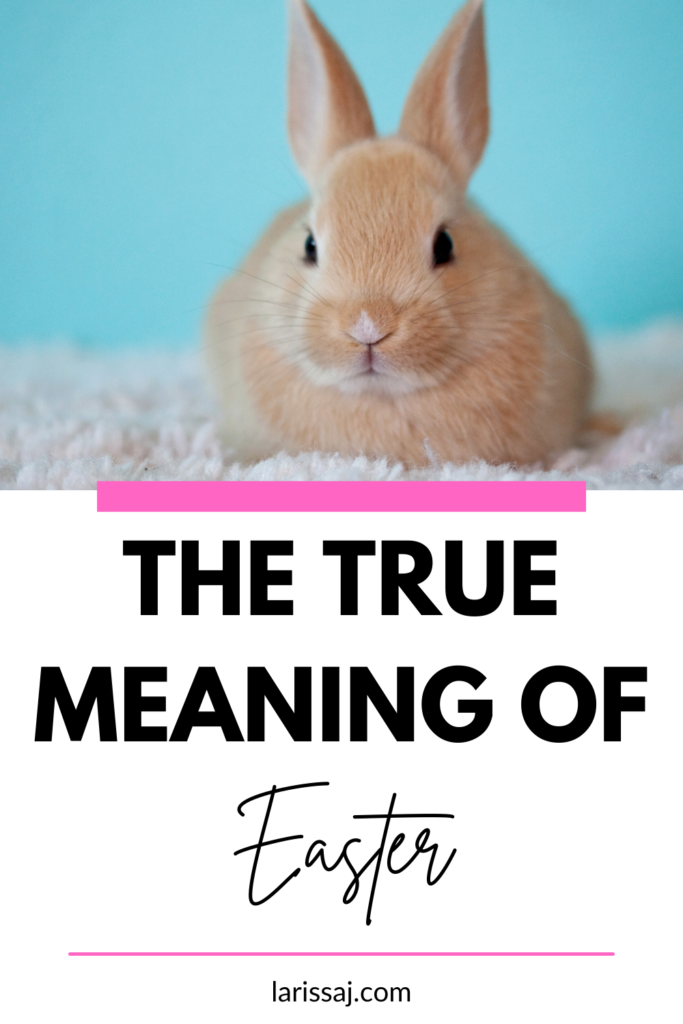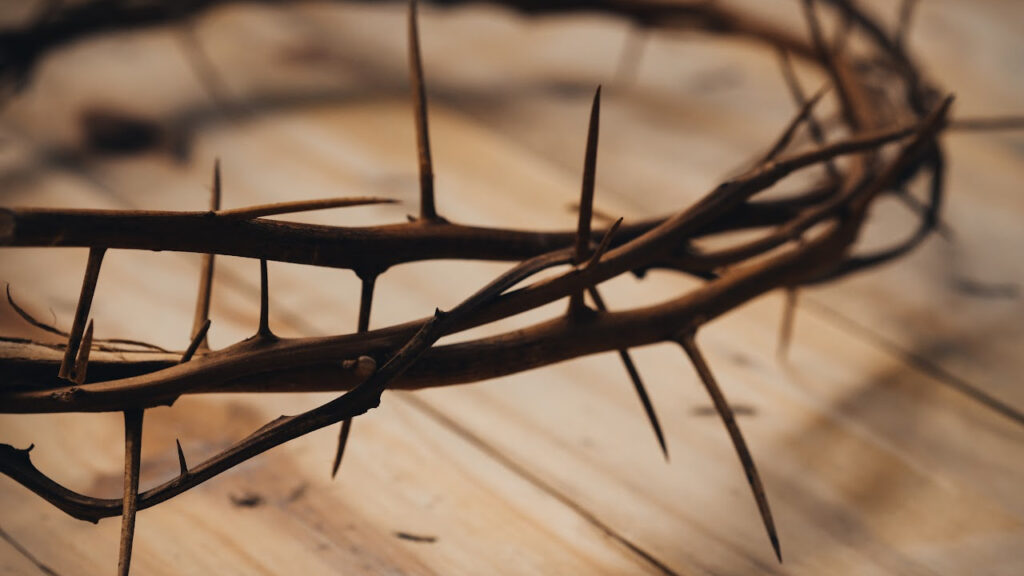This post may contain affiliate links. This means I make a commission if you purchase through my links, at no extra cost to you. Read full disclosure here.
Have you ever wondered about the true meaning of Easter Sunday? Did you know that there is more to Easter than bunnies, springtime and eggs?
We all recognize this commercialized holiday for its pretty pastels, gentle animals, candy and chocolates. However, there is a lot more to it than that. There is history and meaning!
Join me as we dig deeper into the origins of Easter!

What is the Real Meaning Behind Easter Sunday?
First, let’s cover the true meaning behind Easter Sunday based on the Bible. We will look at the Biblical events that have occurred that make Easter Sunday special.
What Does the Bible Say About “Easter”
Instead of Easter Sunday, Christians often refer to this special holiday as Resurrection Sunday. Resurrection Sunday refers to the Sunday after Good Friday when Jesus Chrsit rose from the dead after being crucified.
Here is Matthew’s account of what happened in Matthew 16:1-8 NLT:
1 Saturday evening, when the Sabbath ended, Mary Magdalene, Mary the mother of James, and Salome went out and purchased burial spices so they could anoint Jesus’ body.
2 Very early on Sunday morning,[a] just at sunrise, they went to the tomb.
3 On the way they were asking each other, “Who will roll away the stone for us from the entrance to the tomb?”
4 But as they arrived, they looked up and saw that the stone, which was very large, had already been rolled aside.
5 When they entered the tomb, they saw a young man clothed in a white robe sitting on the right side. The women were shocked,
6 but the angel said, “Don’t be alarmed. You are looking for Jesus of Nazareth,[b] who was crucified. He isn’t here! He is risen from the dead! Look, this is where they laid his body.
7 Now go and tell his disciples, including Peter, that Jesus is going ahead of you to Galilee. You will see him there, just as he told you before he died.
8 The women fled from the tomb, trembling and bewildered, and they said nothing to anyone because they were too frightened.[c]
What Did Jesus Do After His Resurrection?
Mary Magdalene was one of the first that Jesus saw after He rose from the dead early Sunday morning. She went to tell the grieving disciples that she had seen Jesus.
When she told them that she saw Him and that He was alive, they did not believe her. Peter ran to the tomb and saw the linens lying there, so he left wondering what happened.
Jesus then appeared to the other disciples and encouraged them, and made His ascension into Heaven afterward.
You can read about these accounts here:
As you can see, Resurrection Sunday is a wonderful day of celebration because Jesus rose from the dead and He is alive right now!
Click Here for your FREE Holy Week Bible Plan download!
What is the Pagan Origin of Easter?
Easter actually has a Pagan origin that is often not talked about. Easter bunnies and eggs often come to mind when the word Easter is mentioned, but why? Let’s dig deep into the origin of this spring holiday.

The True Pagan Meaning of Easter
Easter began as a pagan festival celebrating the spring equinox. The name is derived from the pagan, spring fertility goddess, Eostre (Ostara), from Anglo-Saxon England.
The festivals were held to celebrate nature’s rebirth and honor the goddess Eostre.It is said that these festivals also included sex rituals.
The Easter hare, or bunny, represents fertility which is a symbol of the goddess Eostre.The hare is known as her sacred animal symbol. This makes sense because rabbits reproduce in large numbers quickly.
Easter eggs are a symbol of fertility, rebirth, and new life after the cold winter months. During the Middle Ages, people used to decorate the eggs and they ate them as a treat after fasting through Lent. They were not allowed to eat eggs during that time, so decorating them made them that much more celebratory.
Much of the commercialism we see today originated in England and Germany. Germany made the first edible Easter bunnies out of pastry in the 19th century. While in England, Cadbury began making chocolate eggs.
So, in short, the origins of Easter have absolutely nothing to do with the resurrection of Jesus. In fact, they pay homage to a pagan fertility goddess.
Many Christians have adopted these ancient, pagan rituals into Christian tradition.
For information about Good Friday which is 2 days before Easter, click here.
Easter Sunday vs. Resurrection Sunday: Final Thoughts
In essence, Easter Sunday and Resurrection Sunday celebrate two different people. Easter traditions stem from pagan roots and festivals that honor the spring and fertility goddess, Eostre.
Resurrection Sunday celebrates and honors Jesus Christ who rose from the grave after His crucifixion.
Each year that we enter into the spring season, we should be aware of exactly what we are celebrating on Resurrection (Easter) Sunday.
As Christians, it’s important to teach our children about this holiday and help them understand the difference between the secular celebration and the true celebration that matters most-the resurrection of Jesus Christ!
Did you learn something about the true meaning of Easter? Wanna keep reading? Here is an article all about Good Friday!
RELATED: Should Christians Celebrate Halloween?
Free Download
Click the button below for your free Holy Week Bible Plan!









